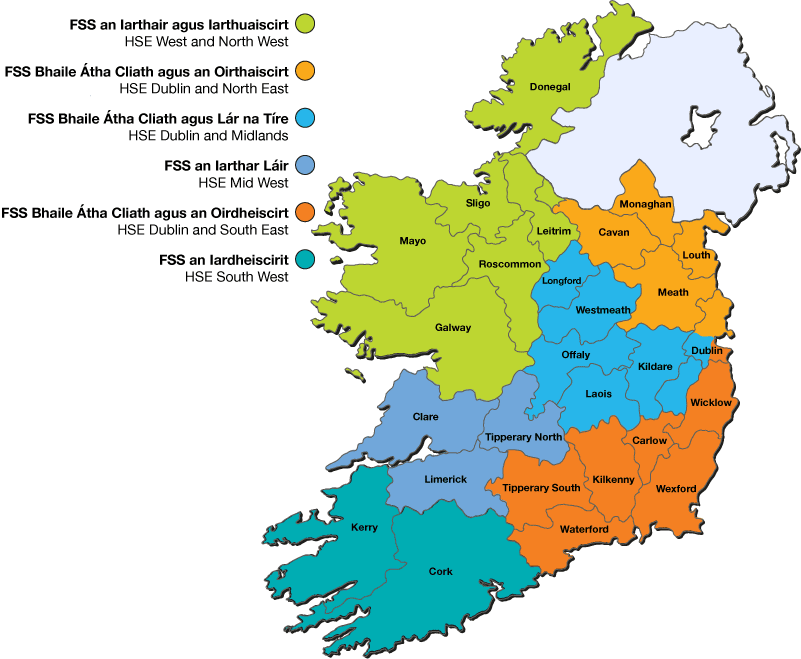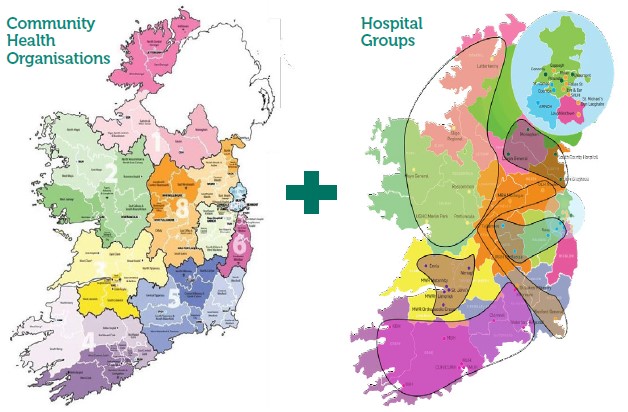Home » Government approves HSE Health Regions Implementation Plan
The planned new six HSE Health Regions are to become operational from February 2024, following Cabinet approval of the HSE Health Regions Implementation Plan in late July. In this article, IPU Editorial Manager Siobhán Kane provides an overview of the Implementation Plan.
The HSE Health Regions Implementation Plan involves the internal reorganisation of the HSE into six operational regions, which is a key part of the Sláintecare recommendations. Each Health Region will have responsibility for the planning and coordinated delivery of joined-up health and social care services.

The new structure reorganises the HSE, which itself is only 18 years old. Before the HSE were the Health Boards, which were established under the 1970 Health Act, with eight initial Health Boards increasing to 11 in 1999. They were replaced in 2005 with the advent of the HSE, which promised a more centralised system that would reduce costs and duplication of roles and provide for more consistent service provision.
When publishing the Implementation Plan, the HSE said; “At the moment, we deliver care through nine Community Healthcare Organisations, six Hospital Groups and Children’s Health Ireland. They serve populations that are grouped in different ways and managed separately, making it difficult to deliver integrated care.” The HSE says the new Health Regions organisational structure will do the following:
Each Health Region will be headed up by a Regional Executive Officer (REO), who will be the accountable officer at Health Region level and will report directly to the HSE CEO. Recruitment for REOs has been approved, and they will be advertised shortly. REO salaries are linked to the pay under the new public only hospital consultant contract and will be up to €257,000. Health Regions will be accountable and responsible for the needs of their local populations. The HSE says; “Health Regions will have appropriate authority and flexibility when managing finances at a regional level. Over time, the population needs in each region will inform their budget.”
Direct references to pharmacy within the HSE Health Regions Implementation Plan centres around partnerships with other healthcare professionals. Within the “Vision” section it states; “Integration will be achieved through the alignment of hospital-and community-based services and through a holistic partnership with GPs, pharmacists, and the fuller range of health service providers at regional and at national level.”
The Implementation Plan also proposes that; “clear interfaces and aligned incentives are defined for all Irish health and social care system internal and external stakeholders… This will support a highly productive, transparent health and social care service that enables transparent communication, enhanced collaboration, and the building of positive trusted relationships, including with GPs, pharmacy, the Section 38 and 39 voluntary sector, and private providers.”


The Implementation Plan sets out a high-level programme of work to establish Health Regions from February 2024. A detailed plan for 2024 and beyond will be completed during 2023.
Existing Hospital Groups (HGs) and Community Healthcare Organisations (CHOs) are already meeting in regional pods that are reflective of the Health Region structures. Health Regions will commence operation from February 2024, and further reforms and devolution of authority will take place on a phased basis through 2024 and 2025. Throughout the remainder of 2023, the responsibilities and boundaries of HGs and CHOs will be brought in line with the new Health Region structures.
Health Regions will be set up from February 2024. By the end of 2024, the existing HG and CHO structures will be stood down as the new Health Regions structures are established.
Siobhán Kane

Editorial Manager, IPU
Highlighted Articles